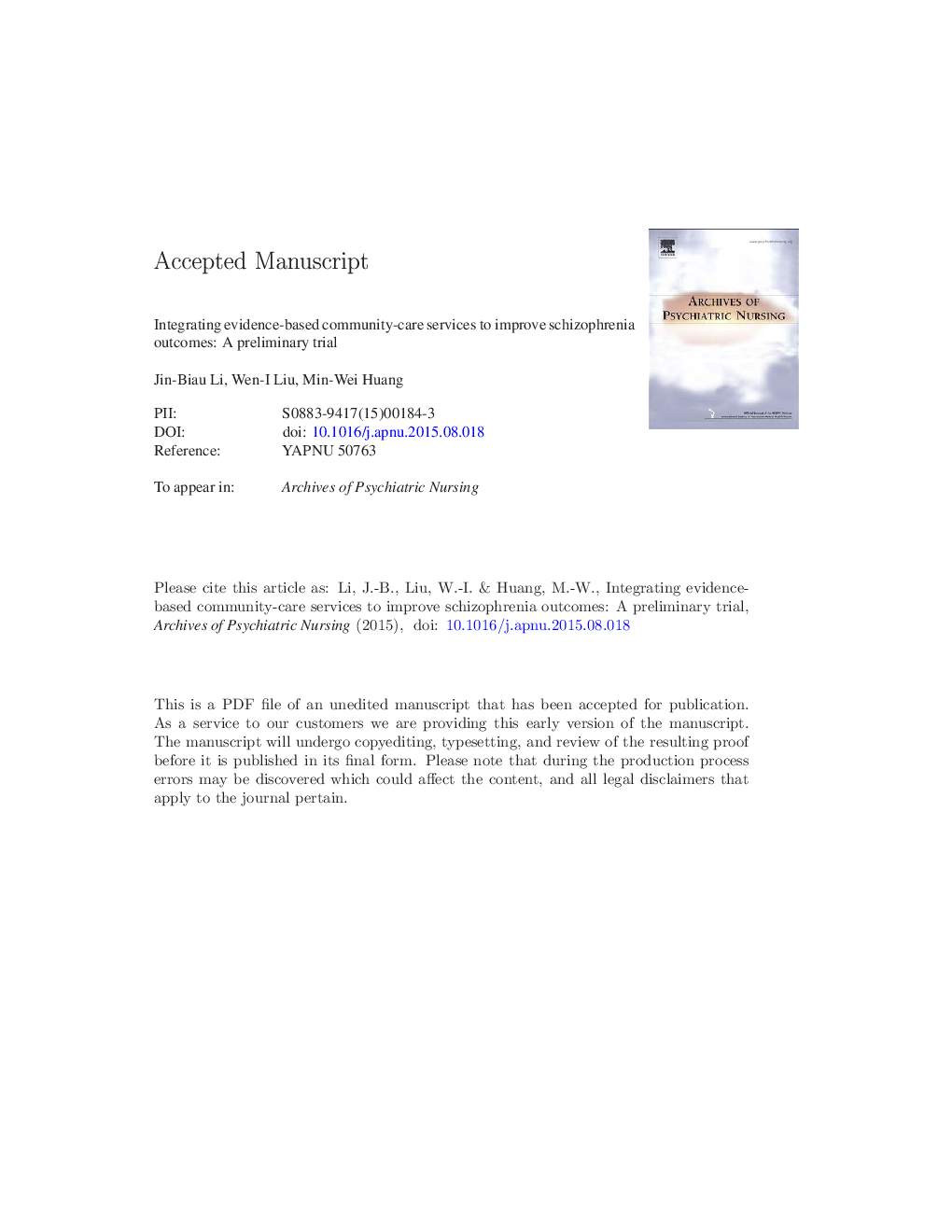| Article ID | Journal | Published Year | Pages | File Type |
|---|---|---|---|---|
| 6786974 | Archives of Psychiatric Nursing | 2016 | 29 Pages |
Abstract
This aim of this preliminary experimental study was to integrate effective evidence-based community-care services that are subjected to heavy caseloads, and to then examine the effects on individuals with schizophrenia. Using a cluster sampling method, four homecare nurses were randomly assigned to either the experimental group or the comparison group. The nurses in the experimental group applied the following six identified effective elements: (1) established an alliance with their patients; (2) assessed patient-care needs; (3) considered both medical and social-care practices; (4) addressed patients' self-management of medication and their daily tasks; (5) provided crisis intervention; and (6) coordinated resources. The patients comprised 85 individuals with schizophrenia. In the experimental group, psychiatric homecare nurses were randomly assigned to implement integrated, evidence-based community-care services during a six-month follow-up period. Patients in the comparison group continued to receive their customary community care. In the experimental group, patient satisfaction scores, medication attitudes, and general functioning levels were significantly higher than in the comparison group. These preliminary findings indicate a potentially effective model for community care in areas where intensive case management cannot be provided.
Related Topics
Health Sciences
Medicine and Dentistry
Psychiatry and Mental Health
Authors
Jin-Biau Li, Wen-I Liu, Min-Wei Huang,
